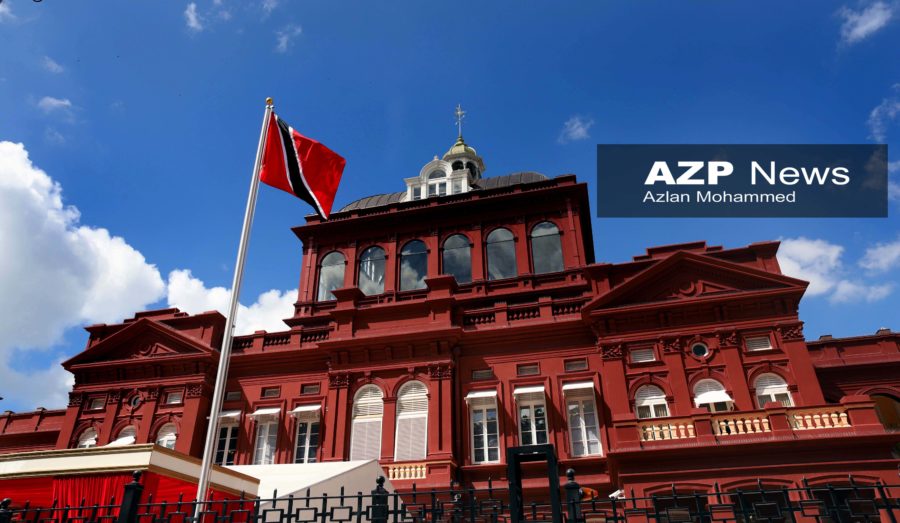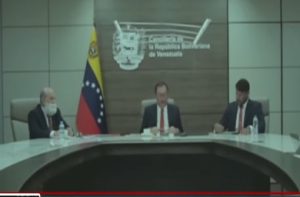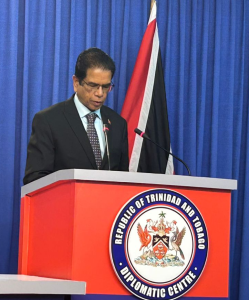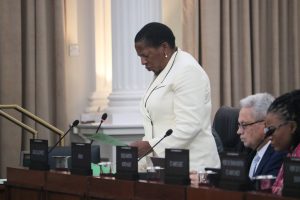Caption: The Red House where the Parliament of Trinidad and Tobago sits. AZP News/Azlan Mohammed

THE budget presented by the PNM on the September 30, 2024 may well be the last in which we experience relative non-action on transfers and subsidies although the subsidies on fuel are almost all gone in Trinidad and Tobago under this administration.
If the PNM secures another term in office, I am convinced that it will pave the way for a definitive intervention by the International Monetary Fund (IMF). That’s where we’re heading!
What we need is to heed our national watchwords: Discipline, Tolerance and Production.
These watchwords are enshrined in the cornerstone of Trinbago’s fabric, sung by our Calypso bards, but hardly ever paid much attention by the government. What we need is a national reset. The boats are gone from our national coat of arms, maybe rightfully so being replaced by our national instrument but the watchwords remain. What we need now is not another set of promises that will never materialise. We need to manage what we have on the ground. Maintain our existing infrastructures and redeploy labour where required.
Sounds simple? Over the last nine years this administration has failed miserably to manage what we have.
Discipline:
They continue to have no discipline and overspend on useless programmes rampant with curry favor instead of taking the bull by their horns and acknowledge that many state companies are over-staffed, spend too much on projects and where corruption runs rampant.
We need to redeploy our workforce to other areas to diversify our economy. Tourism, agriculture, manufacturing, construction and high skilled economies are not made in a day. It takes years and discipline.
Tolerance:
We need to understand that not all criticism is negative. The government and their allies’ ideas are not always right. The chamber of industry and commerce has ad nauseam repeated that the state has no right being in business. Yet they continue to push this agenda. The private sector often runs ports, electricity, telephone companies and water services more efficiently than the government due to several key factors:
1. Profit Motivation
2. Operational Flexibility
3. Accountability and Competition
4. Specialization and Expertise
5. Less Political Interference
6. Investment Capacity
However, private control of essential services also comes with risks, such as prioritising profit over affordability, equity, or access to underserved communities, which is why a good level of regulation is often necessary. First world countries realised 60 years ago that the private sector would be efficient in running these services.
Production:
We need to focus on production. We need better structured mass transportation systems. Our buses need to arrive on time (even on public holidays). Our government has failed to install measured management systems to consistently strive to be more efficient. Not complacent, where the government seems to be satisfied with oneself or one’s position or achievements no matter the bitter taste it leaves in the average citizen mouth. We need to produce systems to ease our citizens’ daily life. Not putting a system in place to make citizens wait in lines for days to pay a tax that the government knew was insufficient and that they had no choice but to extend the deadline as it was a half baked decision.
Given the country’s ongoing economic challenges, particularly with foreign exchange shortages and high public debt, it seems unlikely that the PNM can continue delaying difficult decisions.
They have however, tried to deliver an election budget with just promises and more promises and no real accountability for the deliverables.
For years, we have maintained a system of subsidies and other essential goods to avoid the political fallout of austerity measures. However, the fiscal reality is catching up with them, and the prime minister has already signalled that hard times are ahead until 2027 and as more pressure mounts reform will likely intensify on them. Although the minister of finance paints a different picture of good times ahead.
This means the comfort we’ve been afforded through transfers and whatever subsidies that are still left could be coming to an abrupt end. An IMF-backed reform programme would force this government to re-evaluate its spending plans, and average citizens are likely to feel the burden of its poor management skills. If the PNM wins the next election, we should brace ourselves for what may be the hardest economic shift the country has seen in decades.
Neil Gosine is an insurance executive, sometimes a temporary Opposition Senator, an ex-treasurer of the UNC and a former chairman of the National Petroleum Marketing Company of Trinidad and Tobago (NP). He holds a Doctorate in Business Administration, a Master’s in Business Administration MBA, BSC in Mathematics and a BA in Administrative Studies. The views and comments expressed in this column are not necessarily those of AZP News, a Division of Complete Image Limited
![]()














